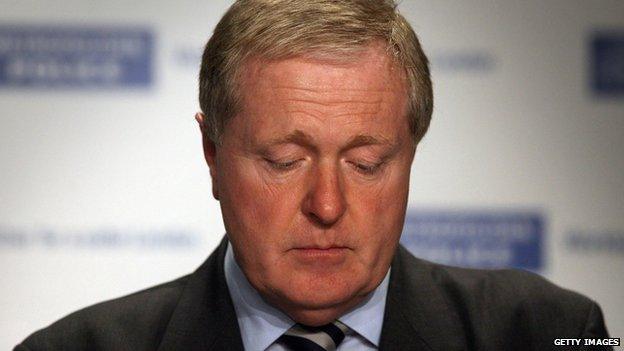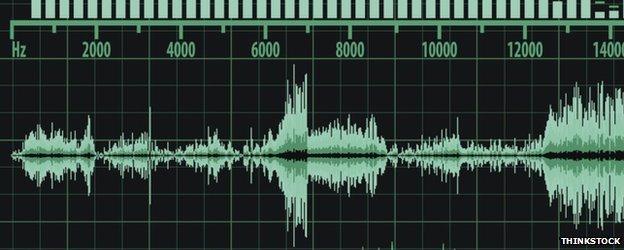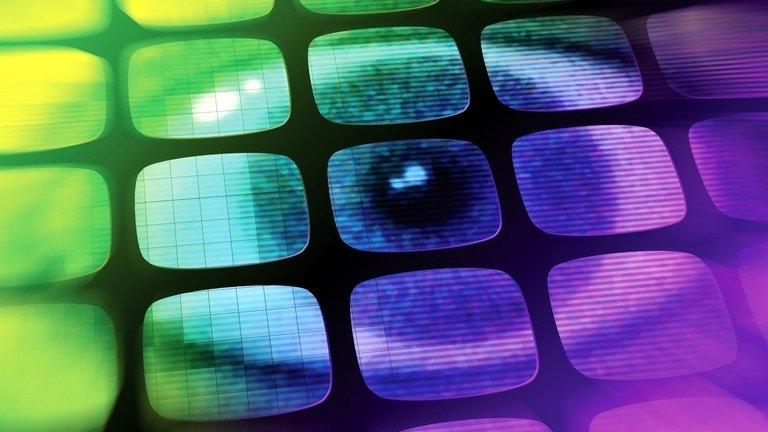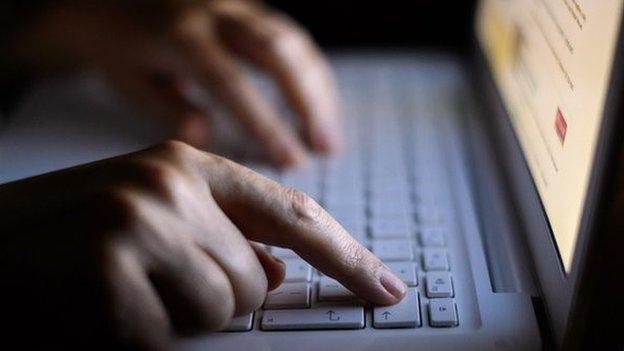'Snoopers' charter' revival on hold as redraft demanded
- Published

The former Met Police commissioner Lord Blair was among the four peers to table the amendment
A last-minute attempt to revive a "snoopers' charter" before the general election has been dropped.
Four peers tried to push through measures from the bill, rejected in 2012, adding them to draft legislation currently before Parliament.
But their fellow Lords were unconvinced and the amendment withdrawn.
The BBC understands they will try again next week unless the Home Office publishes a government redraft of the bill, of which the Lords has been told.
Last week, Lords King, Blair, Carlile and West proposed adding whole sections of the defeated Communications Data Bill to the Counter-Terrorism and Security Bill, which is currently being considered by Parliament.
'Snoopers' charter'
But Lord Blencathra, whose joint committee scrutinised - and was heavily critical of - the original legislation, told a House of Lords debate on Monday that the government had subsequently redrafted the bill.
The new draft, he said, addressed his concerns and could not be considered a "snoopers' charter".
In response, the peers withdrew the proposed amendments, which threatened to enshrine the controversial measures in law, and called on the government to produce its draft.
A source told the BBC that if the Home Office was to refuse that request, the "snoopers' charter" proposals would be revived once again and added to the draft counter-terrorism legislation.

Four peers proposed an amendment to an existing bill that was largely copied directly from the "snoopers' charter"
The Internet Service Providers Association (Ispa) said it agreed that the government should produce its private draft.
But both Ispa and the Open Rights Group, which campaigns for digital freedom, said it should wait until after the general election, in order to avoid rushing the legislation through.
"Ispa, along with many others, have not seen the amended Communications Data Bill, nor had a chance to scrutinise it.
"As many peers and the joint committee argued, it is crucial that industry is involved in a full and proper consultation at an early stage," said Ispa's secretary general Nicholas Lansman.
During Monday's debate, the four peers defended the wholesale reintroduction of the rejected draft legislation because, they said, there was a dangerous gap in Britain's ability to deal with the threats posed by terrorists and serious criminals.
Four Labour, Conservative and Lib Dem peers try re-introduce Communications Data Bill powers to aid security services.
Similar to the Communications Data Bill, their proposed amendments to the Counter-Terrorism and Security Bill sought to require internet service providers to hold records of customers' browsing habits for a year.
However, they cut the number of agencies that could demand access to the data from the hundreds included in the original bill to just three: the police and the two security services.

Data laws

Draft Communications Data Bill 2012 - Would have extended the range of data communications companies have to store for 12 months. It would have included, for the first time, details of messages sent on social media, webmail, voice calls over the internet and gaming, in addition to emails and phone calls. Officials would not have been able to see the content of the messages without a warrant. The bill, dubbed the "snoopers' charter" by critics, was blocked by the Lib Dems
Data Retention and Investigatory Powers Act 2014-15 - Introduced as emergency legislation to maintain the requirement for phone and internet companies to log records (but not content) of calls, texts and internet use
Counter-Terrorism and Security Bill 2014-15 - Part of the bill going through Parliament would add to the Data Retention and Investigatory Powers Act to allow internet protocol (IP) address matching. This would identify the individual or the device that was using a particular IP address at any given time. The peers proposed - then dropped - the idea of adding elements of the Draft Communications Data Bill 2012 to it

On Monday, Lord Blencathra said he stood by his committee's criticism of the original bill, which it said was "too sweeping, and goes further than it need or should". He could not support the amendments, he said.
Ispa and the Open Rights Group added to the criticism last week, calling the attempt to add such comprehensive amendments at a late stage in the bill's progression through Parliament an "abuse of procedure".
A Home Office spokesman said: "We have been clear throughout this Parliament of the need for legislation to give our law enforcement agencies the properly regulated access they need to communications data to help them keep the public safe."
- Published23 January 2015

- Published18 January 2015

- Published14 January 2015
